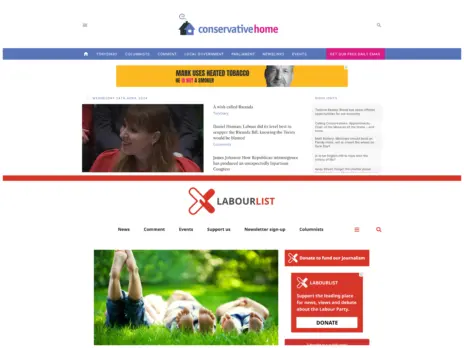
The Editors’ Code of Practice, overseen by the Independent Press Standards Organisation, has been recognised by the Government as offering a level of regulation equivalent to the latest European Union legislation on financial markets and journalism.
The EU’s new Market Abuse Regulation, which came into effect in July, sets out new standards intended to block abuse of financial markets.
It includes, in Article 20, provisions requiring people who “produce or disseminate investment recommendations or other information recommending or suggesting an investment strategy” to “take reasonable care to ensure that such information is objectively presented, and to disclose their interests or indicate conflicts of interest concerning the financial instruments to which that information relates”.
Along with the Regulation there are Regulatory Technical Standards, which make more specific provisions.
But UK journalists have been exempted from the Regulatory Technical Standards after the Government decided that the Editors’ Code of Practice and Ipso’s policing of it offer equivalent regulation.
The development was announced this month in a Guidance Note on the website of the Editors’ Code of Practice Committee, which described the Government’s decision as “welcome official endorsement of the effectiveness of Ipso and the Code of Practice”.
The committee said the guidance note, which replaced an earlier version issued in 2005, contained some items which were previously described as “best practice” but were now mandatory – and included a requirement on the external disclosure of financial interests.
Clause 13 of the Editors’ Code of Practice, covering financial journalism, says:
i) Even where the law does not prohibit it, journalists must not use for their own profit financial information they receive in advance of its general publication, nor should they pass such information to others.
ii) They must not write about shares or securities in whose performance they know that they or their close families have a significant financial interest without disclosing the interest to the editor or financial editor.
iii) They must not buy or sell, either directly or through nominees or agents, shares or securities about which they have written recently or about which they intend to write in the near future.
The Guidance Note says: “The intention of Clause 13 is clear: no journalist or editor should undertake any form of activity relating to financial journalism which could be open to misinterpretation or which could damage the integrity of his or her publication.
“The Code was deliberately written in broad terms to ensure such high standards: the danger with precise language is that it creates loopholes. In this area of reporting, there should be none.”
Breaching the Editors’ Code of Practice will result in a requirement to publish prominent corrections and critical adjudications, it says, adding that serious and systemic breaches could lead to publications being fined as much as £1 million.
The Code applies to all journalists and their editors, and requires disclosure of shareholdings about which journalists are writing to editors or financial editors, it says.
Editors have a duty to ensure that no conflict of interest arises and that systems are in place to achieve that requirement.
“Best practice on most publications requires editors to report their own interests to managing directors or publishers: this is most practically done by means of an internal register,” it says.
On the question of what editors or publishers should do when internal disclosure is made to them and they are concerned about a possible breach of the Code, the guidance says: “Best practice on the majority of publications would be for the editor or publisher to instruct a journalist to unwind a transaction or, if the need arises, to take more serious disciplinary action.
“Most publications would also instruct a journalist not to deal in a specific share or other security.
“In order to ensure that the internal disclosure regime is as effective as possible, those who maintain a register of shareholdings, or to whom journalists and editors report, should regularly examine those disclosures that have been made for any sign of irregularity.”
It also says that many publications favour a confidential register of holdings by journalists and editors, adding that “this is to be encouraged”.
On the question of “external” disclosure of journalists’ financial interests, the guidance says complete external disclosure of shareholdings to readers is not a practical proposition because of the number of people – from journalists, to sub editors to editors – who might be responsible for what ultimately appears in a publication.
It goes on: “However, the Regulatory Technical Standards requires compulsory external disclosure and although including this in every story would not be practicable, external disclosure from the originating writer of an article should take place, perhaps on the publication’s website.
“This buttresses the safeguards inherent in internal disclosure and compliance with the terms of the Code of Practice.
“A general disclosure that journalists may hold or deal in securities reported on is probably of limited value. A specific disclosure that the originating writer holds or has dealt in the securities reported on will be of value to the reader.”
But under the Regulatory Technical Standards external disclosure of any significant financial interests or conflicts of interest is mandatory for journalists making specific recommendations to readers to buy, sell or hold shares or other securities, says the guidance, adding: “This could be done by publishing a reference to a place where the information is publicly available, such as the paper’s website. The reference to where any disclosures can be found could also be made in a standard box referring to Ipso.”
It also stresses the importance of accuracy when journalists are making recommendations to buy, sell or hold shares, and when newspapers publish recommendations made by third parties.
“Editors and journalists should ensure that information is presented accurately, that facts are distinguished from interpretations, estimates and opinions, and that care is taken to ensure that sources are reliable,” it says.
“When publishing recommendations, publications should be as transparent as possible in the interests of good practice. Editors should ensure the names of individual journalists who make overt recommendations are made available (even if this is just via a website).”
Email pged@pressgazette.co.uk to point out mistakes, provide story tips or send in a letter for publication on our "Letters Page" blog






